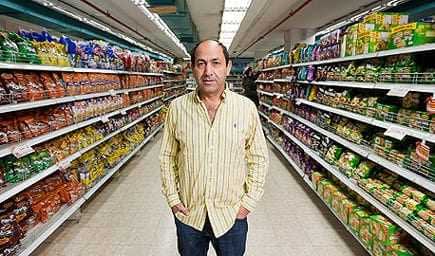
Rami Levy owns one of the supermarket chains where the suspected fraudulent products were being sold.
Israeli supermarket chains Rami Levy and Home Center have removed thousands of olive oil products from their shelves following a series of factory raids. Investigators suspect that industrial “lampante” grade oil, unfit for human consumption, was being sold as olive oil.
Suspicions were first raised several weeks ago, when the Israeli Agriculture Ministry received tips from various sources indicating fraudulent activities at two factories in northern Israel, according to Haaretz. The exceptionally low cost of the oils — NIS 19.99 ($5.15) for a 750-milliliter bottle of olive oil compared to the normal range of NIS 35 ($9.02) to NIS 50 ($12.88) — also raised suspicion.
The Agriculture Ministry’s Flora and Fauna Supervision Unit, in coordination with the Health Ministry, conducted the raids, which led to the confiscation of 25 tons of oil. The factories, the Health Ministry said, were licensed to filter olive oil but not to refine it, and the owner of the two locations had already been disqualified from selling olive oil due to previous violations.
“Since the oil was imported into Israel as unfit for human consumption, it did not undergo any inspection by the Health Ministry at the port. It underwent chemical processing, after which it was sold as edible,” investigators told sources.
The seized oil will be tested in government labs to determine whether or not it meets Israeli manufacturing standards. Confirmed violations of health standards would result in legal action.
The Israeli Customs Directorate was also notified for possible customs fraud. According to Israeli law, tariffs are not required to import oil used for lighting lamps as opposed to edible oils. Originating in Spain and Greece, the imported oils in question were processed in the factories in Israel and sold under four or five brand names.
The Rami Levy Shivuk Hashikma chain was quick to respond to the recent allegations. Owner Rami Levy said they had received the necessary permits required to sell the oils, including a manufacturing permit from the Health Ministry, the seal of the Israel Olive Oil Board, the ISO 9001 standard and kashrut certification.
“In a conversation I had with the manufacturer, he claimed that the allegations were not accurate,” Levy told Haaretz. “The Health Ministry and the Agriculture Ministry did not contact me about the matter, but to be on the safe side, I am removing the products under discussion from the shelves until the matter has been resolved.”







